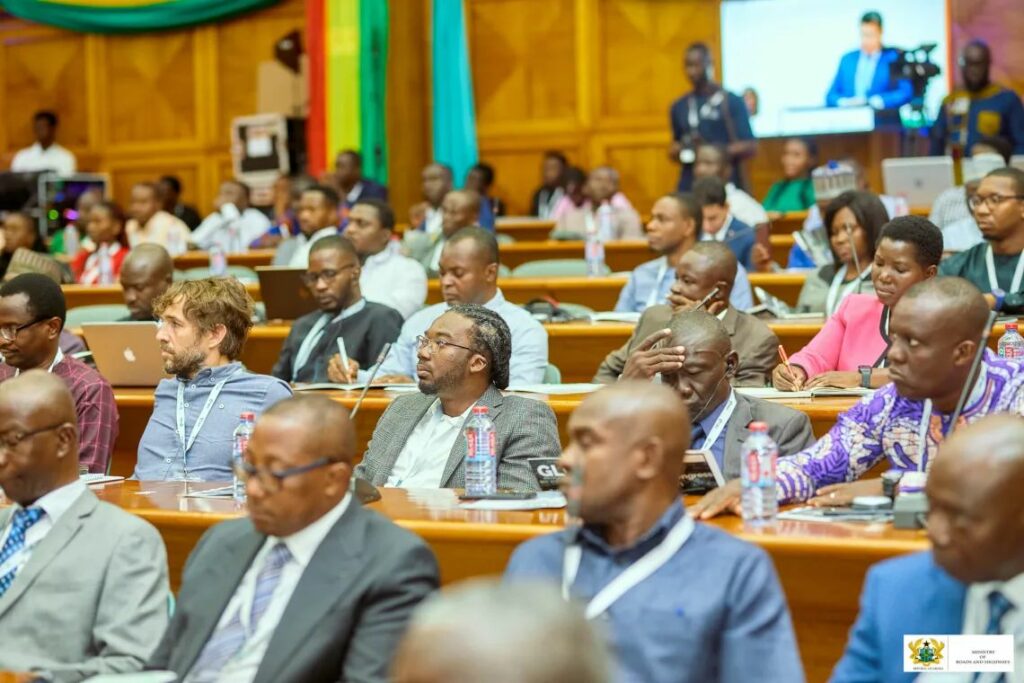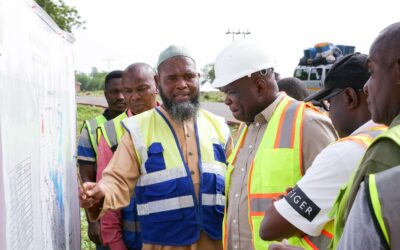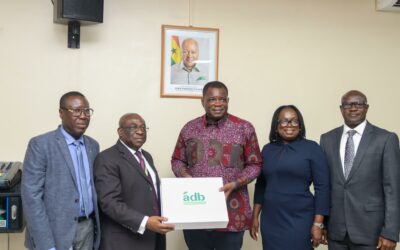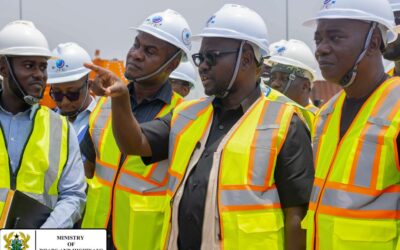We’ll build better, safer roads in Ghana – Roads Minister

The Minister for Roads and Highways, Hon. Kwasi Amoako-Attah, has indicated that his outfit will draw on the rich experience of delegates at the ongoing Regional Congress and Exhibition of the International Road Federation (IRF) to build better, safer and smarter road systems for Ghana.
The Minister was confident that topics under discussion would provide useful avenues for Ghanaian engineers to become abreast with some of the latest designs for roads and their maintenance.
The congress, in its third year themed ‘Delivering Tools for Mobility and Regional Connectivity,’ pooled experts and stakeholders in the road transportation sector from across the African continent to discuss innovative solutions and best practices.

Topics being discussed include, adopting a long-term transport infrastructure, funding and procurement framework for the continent, enhancing the quality of transportation network through durable pavement design, climate-resilient infrastructure and preventive asset management strategies and introducing world-class traffic engineering and management solutions in a region on the move.
Hon. Amoako-Attah was hopeful that “these topics will help provide solutions to the myriad of challenges confronting the road sector on the continent.”
Real impact of IRF training programmes
Ghana, he recalled had benefitted from IRF training programmes on areas such as performance based contracts, safer road work zones and sustainable pavement design.
The benefits of the training programmes were enormous for the Ministry. Under the Sustainable Pavement Design course, a major recommendation was the re-use of existing pavements as much as possible. “For instance, in the Reconstruction of the Agona Junction Tarkwa Highway project, instead of milling and throwing away of the existing pavement, we are recycling it for reuse. This comes with cost savings to the state,” the Minister added.
Ghana’s road network improved
Mr Amoako-Attah revealed that the county’s total road network was estimated at 94,203km, with 27% paved and 73% unpaved. “We have increased the stock of our paved roads despite the expansion in the network size. The interventions over the last 6 years have led to a marked improvement of Ghana’s road network to 44% good, 34% fair and 22% poor, that is, a 7% reduction in the proportion of roads in poor condition,” he stated.
World Bank Country Director for Ghana, Liberia, and Sierra Leone, Pierre Laporte challenged delegates at the conference to think of how to effectively mobilize and involve the private sector, the Academia as a critical chain in seeking lasting solutions to the myriad of challenges that had bedeviled the continent.
The World Bank Boss disclosed that the World Bank’s Regional Transport Strategy focused on supporting the structural transformation for poverty reduction by enhancing productivity with efficient and resilient transport sector systems and institutions with a focus on people.
He lamented that 30% of Africa’s population was located more than 2 hours away from the nearest hospital.
According to him, climate extremes, and conflicts, were further deteriorating rural poor accessibility.“These challenges limit access to essential services and access to markets or job opportunities,” Mr Laporte stated.
Recent Posts
- Government to Release GH¢4bn to Resume Stalled Road Projects
- Prez Mahama is Committed to Open-up Afram Plains once and for all” – Hon Agbodza
- Hon Agbodza inspects work on Buipe, Yapei Bridges
- Hon. Agbodza explores Partnerships with Local Banks to Fund Road Projects
- ROADS MINISTER INAUGURATES A 5-MEMBER COMMITTEE TO REVIEW ACTIVITIES OF AXLE LOAD OPERATION IN THE COUNTRY







Recent Comments